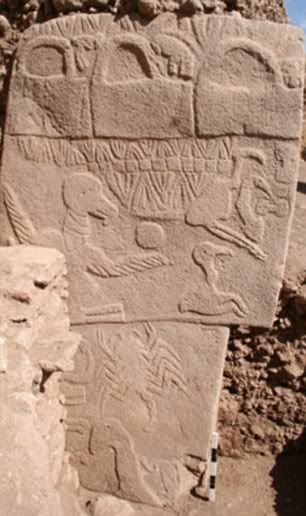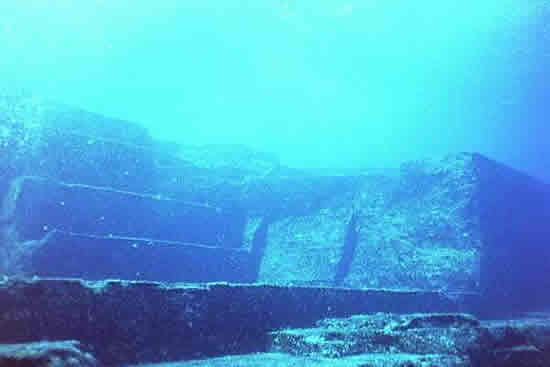More Vanishing Dogmatic Science
Of course media will sensationalize stuff like this with references to biblical fantasy to sell it, but mysterious archeology is always referred to in religious terms. It doesn't detract fom it's immense significance.
 come on, lcd tv screens? didn't they have cave paintings?
come on, lcd tv screens? didn't they have cave paintings?
Do these mysterious stones mark the site of the Garden of Eden?
"For the old Kurdish shepherd, it was just another burning hot day in the rolling plains of eastern Turkey. Following his flock over the arid hillsides, he passed the single mulberry tree, which the locals regarded as 'sacred'. The bells on his sheep tinkled in the stillness. Then he spotted something. Crouching down, he brushed away the dust, and exposed a strange, large, oblong stone.
The man looked left and right: there were similar stone rectangles, peeping from the sands. Calling his dog to heel, the shepherd resolved to inform someone of his finds when he got back to the village. Maybe the stones were important.
They certainly were important. The solitary Kurdish man, on that summer's day in 1994, had made the greatest archaeological discovery in 50 years. Others would say he'd made the greatest archaeological discovery ever: a site that has revolutionised the way we look at human history, the origin of religion - and perhaps even the truth behind the Garden of Eden.
A few weeks after his discovery, news of the shepherd's find reached museum curators in the ancient city of Sanliurfa, ten miles south-west of the stones.
They got in touch with the German Archaeological Institute in Istanbul. And so, in late 1994, archaeologist Klaus Schmidt came to the site of Gobekli Tepe (pronounced Go-beckly Tepp-ay) to begin his excavations.
As he puts it: 'As soon as I got there and saw the stones, I knew that if I didn't walk away immediately I would be here for the rest of my life.
Schmidt stayed. And what he has uncovered is astonishing. Archaeologists worldwide are in rare agreement on the site's importance. 'Gobekli Tepe changes everything,' says Ian Hodder, at Stanford University.
David Lewis-Williams, professor of archaeology at Witwatersrand University in Johannesburg, says: 'Gobekli Tepe is the most important archaeological site in the world.'
Some go even further and say the site and its implications are incredible. As Reading University professor Steve Mithen says: 'Gobekli Tepe is too extraordinary for my mind to understand."
It shouldn't be that hard to grasp if you allow yourself to understand that human history is far more complex and interesting than rigid science will allow. As the conduit between european and asian landmasses, Turkey has already proven to be pivotal to understanding the truth about the rise and fall of civilizations. The entire story of human existence on this planet is being rewritten during our lifetimes. Just ask the lucky divers who've marveled at the drowned megalithic structures off the coast of Okinawa that used to be on dry land over 10,000 years ago.
diver near the eye of a colossal face
100 Best RSS Feeds to Follow Science News








1 Comments:
The first photo appears to no longer be working. That said, I want to thank you for posting this! I'm a longtime follower of Edgar Cayce and believe there were major civilizations that began dissolving 50,000 years ago with the process ending around 10,000 years ago. That obviously doesn't jive with modern anthropologists who believe human civilization didn't come to bear until around 6,000 years ago.
Post a Comment
<< Home